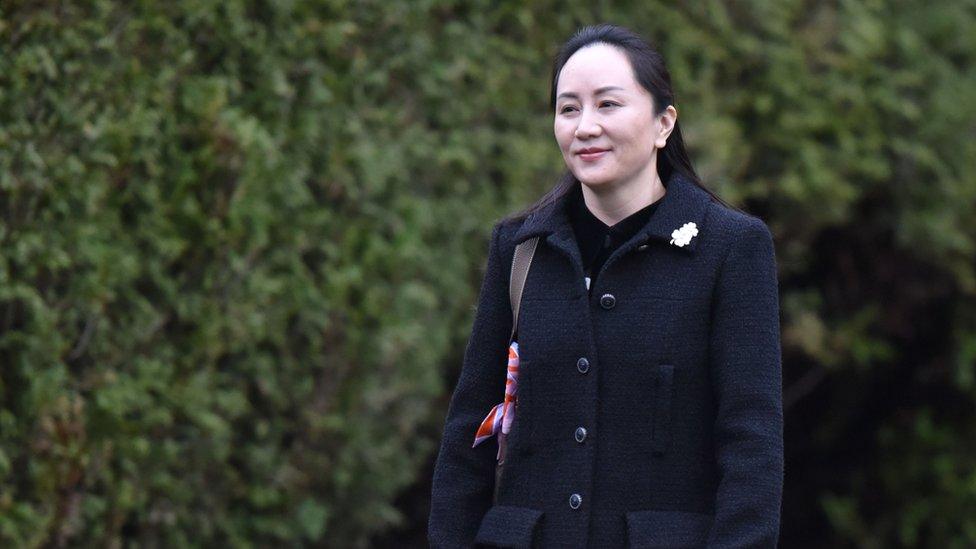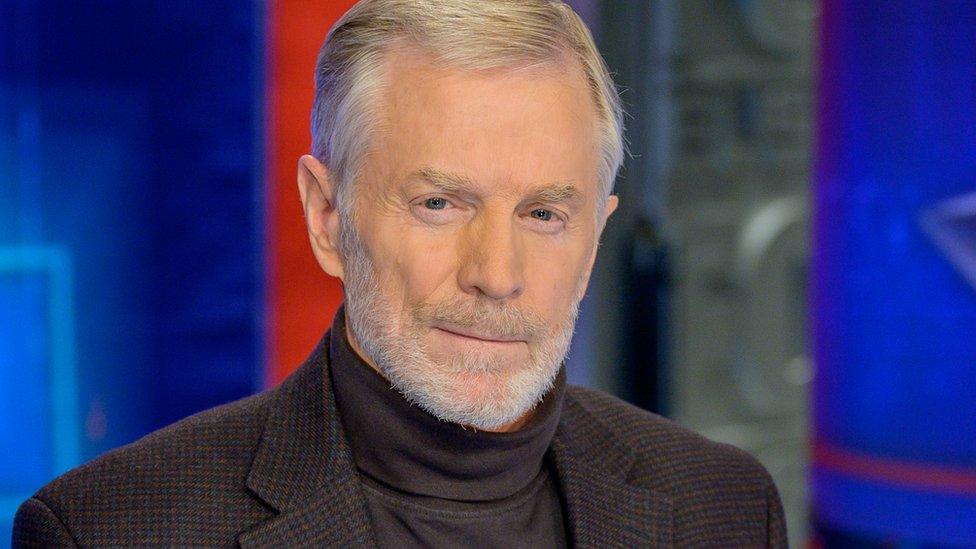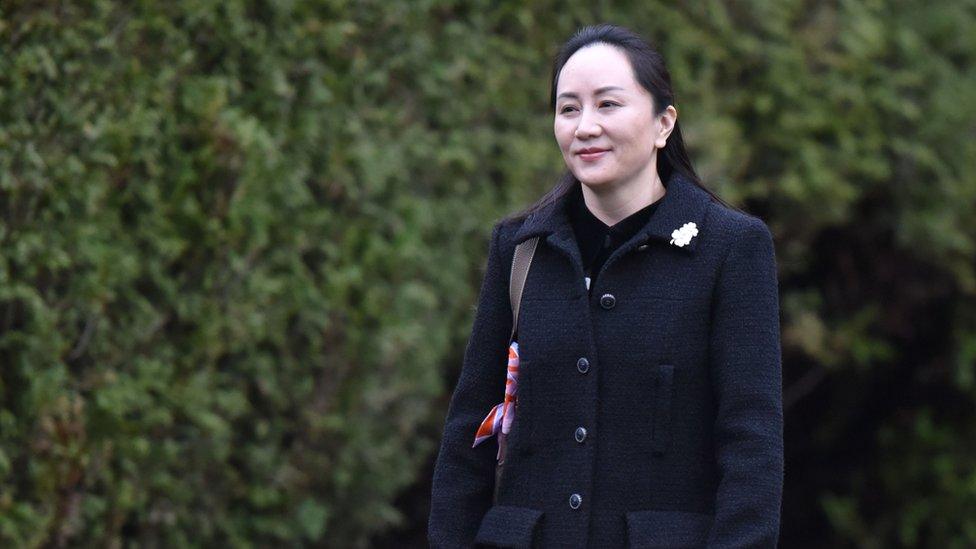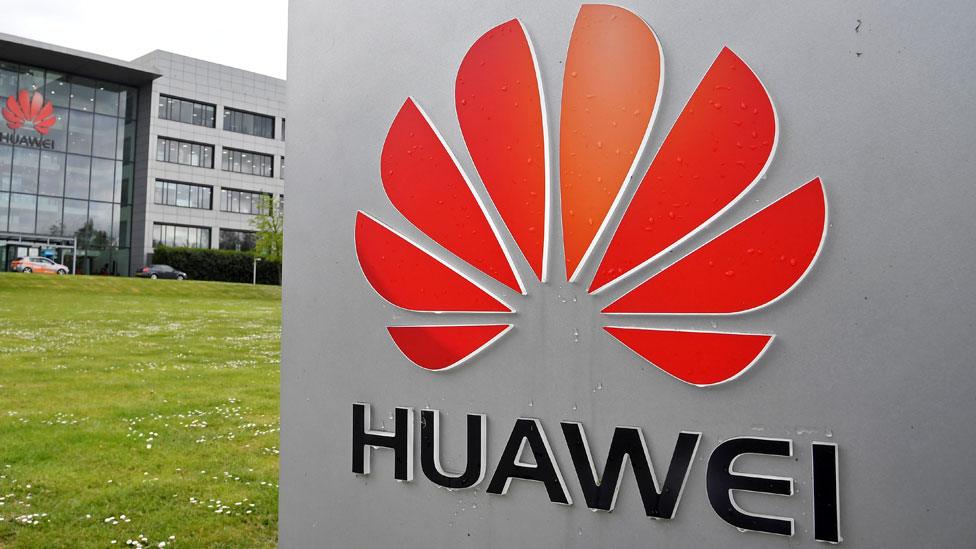Meng Wanzhou 'irreplaceable' to company, says Huawei executive
- Published

Meng Wanzhou was arrested during a layover in Vancouver in 2018
Huawei's chief security officer has told the BBC the firm's chief financial officer is "irreplaceable".
Meng Wanzhou is fighting extradition from Canada to the US - where she is wanted on charges of fraud and sanctions violations.
But the chief security officer, Andy Purdy, told the BBC that - although Ms Meng was crucial to the firm - there was a "succession plan" in place.
Prior to her arrest, Ms Meng was a key figure in the Huawei's 5G efforts.
The latest iteration of high-speed wireless technology, known as 5G, will increase mobile connectivity and data speeds around the world.
The start of her hearing comes as Huawei battles US efforts to block it from participating in the development of 5G.
The US has labelled the company a security risk and banned the sale of its products. US politicians are also pushing allies including the UK, Germany and South Korea to block Huawei from their markets.
The conversation with Mr Purdy took place outside the courthouse in Vancouver, Canada, where Ms Meng's hearing is taking place.
The interview has been edited for clarity and brevity.


Andy Purdy is Huawei's chief security officer
How do you feel Meng Wenzhou's hearing is going so far?
We believe the lawyers for Ms Meng have been able to make the very strong case that there are no grounds for extradition.
Hopefully soon, neither while Ms Meng nor Canada will be in the middle of this kind of trade war between the US and China.
Meng Wanzhou was a key player in Huawei's efforts to build a global 5G network. If she is extradited and if she is convicted - how will Huawei deal with the loss?
Ms Meng is very important to the leadership and the conduct of our business globally…on one level, she's irreplaceable.
But we always have to have a succession plan, we have to have the ability to proceed if something happens. So if we have to proceed without her, it's going to really be a shame.
The substantive work on 5G continues… and we're making tremendous progress. We're about 18 to 24 months ahead of the competition [on 5G] and everybody recognises that.
In 2019 the US labelled Huawei a security risk - barring US suppliers from selling to it. How has Huawei been coping without having access to these suppliers?
We have nearly 300 American suppliers that would like to continue to sell to Huawei.
That amounts to about 40 to 50,000 American jobs directly and indirectly impacted... and it's going to be a challenge as we move forward. But our revenues for 2019 were strong - up over 18%.
This year [2020] is going to be a difficult year. But the fact is, none of our executives are going to lose their jobs.
We're going to continue to grow our business and we're going to continue to succeed.
Where does Huawei see the best opportunities for growing its presence in 5G?
The whole world is a big opportunity for 5G. Some of the most promising countries around the world are places like South Korea, obviously, China. We've just gotten approval in India to proceed.
We see some of the European countries are really moving forward quite quickly with 5G.
And in fact, the UK parliamentary committee report said the UK will be less secure if Huawei is not part of the network… because a diverse system of suppliers helps ensure that despite potential major attacks, the systems are kept up and running.
How confident is Huawei that it will give approval for it to be part of the 5G network in the UK?
Well, I wouldn't say we're confident that the UK is going to include Huawei - although a number of statements by senior government officials seem to be pointing in a positive direction.
So we have our fingers crossed, we hope and expect that they'll make a decision that's for the best for the people of the United Kingdom.
What kind of impact has all of this had on Huawei's relationship with the United Kingdom?
We've been working very closely with the four major carriers in the UK, and with the UK government.
It's a very strong relationship over many years. We are having substantive discussions - that aren't mired in politics - around transparency and cyber security.
Because this technology really matters, it has to be provided in a secure way to citizens and organisations of the country - and it's possible so that we could all take advantage of these technologies.

Meng Wanzhou's extradition fight
Ms Meng was arrested in December 2018 during a layover in Vancouver. She is accused by US authorities of lying to banks in order to avoid American sanctions on Iran. She denies the charges.
Huawei has said it has trust in Canada's judicial system "which will prove Ms Meng's innocence".
Huawei founder Ren Zhengfei on the arrest of his daughter
Her lawyers argue extradition would mean Canada was in effect upholding US sanctions on Iran.
Lawyers for Canada's attorney general have focused their arguments on the accusations of bank fraud.
The extradition hearing is expected to run 20-24 January. But a decision by the presiding judge is expected to take several more weeks.
- Published21 January 2020

- Published14 January 2020
